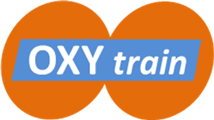
WP3 – Copper-dependent monooxygenases (NMBU – ESR7, UOY – ESR8 and DFS – ESR9)
While some lytic polysaccharide monooxygenases have already found applications in the biorefinery industry, details on how these enzymes function and how their functioning can be optimised and optimally exploited are lacking. The Eijsink group (NMBU -ESR7) will focus on elucidating the mechanism by which these lytic polysaccharide monooxygenases work, including activity, electron transport and substrate activity. Work will be conducted on several types of LPMOs, to cover natural diversity and identify optimal industrial biocatalysts. This research will involve a series of advanced biochemical methods, including isothermal titration calorimetry, Raman spectroscopy, high-throughput mass spectrometry and kinetic isotope effects. In addition, a considerable effort will be made to develop good kinetic assays that allow proper enzyme characterisation needed for enzyme engineering efforts to develop optimal biocatalysts. Work performed at UOY (ESR8) will enable insights into the mechanism of oxygen activation by the copper active site of LPMOs. Further, a wholly new LPMO assay based on Surface-Enhanced Raman spectroscopy (SERS) of polysaccharide-coated nanoparticles will be developed. SERS is an extremely powerful and sensitive technique for the study of the chemistry of enzyme action on a substrate. This will complement the work of ESR7 by providing a generic assay for the study of oxidation attack on polysaccharide substrates. Laboratory data will be used to evaluate monooxygenases in industrial applications and optimise processes in real (pilot-scale) industrial bioreactors, where process conditions such as oxygen availability will affect operational LPMO monooxygenase performance, and the overall outcome of (biomass) conversion processes will be assessed (ESR9, DFS).
